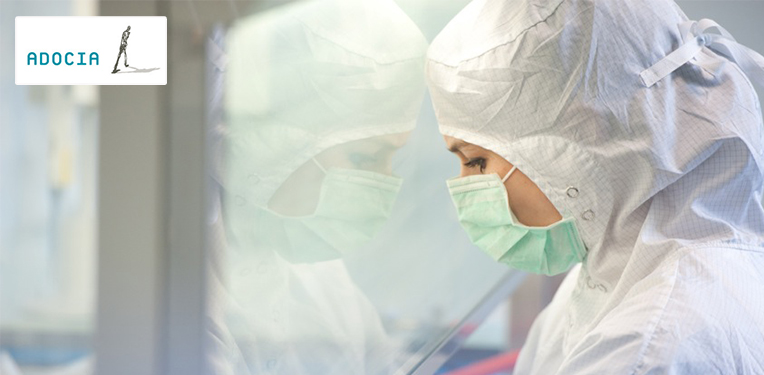Adocia announced today the initiation of a clinical Phase III study in India of BioChaperone PDGF-BB, the company’s innovative formulation of Platelet Derived Growth Factor (PDGF-BB) for the treatment of diabetic foot ulcers. This follows the approval given by the Drug Controller General of India (DCGI) on August 22nd, 2014. The dossier for this clinical trial was filed in September 2012, but the processing of the application had been delayed by the internal reorganization of the Indian regulatory agency.
This Phase III clinical trial is designed to confirm on a large population the efficacy of BioChaperone PDGF-BB spray to treat diabetic foot ulcer. Its results are expected to be used to support registration and market approval in India and in several other emerging countries. This double- blind, multicenter study will enroll 252 diabetic patients with a chronic foot ulcer. The main efficacy endpoint is complete wound closure after a maximum 20 weeks of treatment. Secondary efficacy criteria include wound closure at 10 weeks and the rate of reoccurrence three months after closure. Results of this study are expected in the first quarter 2016.
Olivier Soula, General Deputy Manager and Director of R&D at Adocia stated:
“We are very pleased to have obtained the Indian Agency’s approval to begin this clinical study, which, should it be successful, would support marketing approval of Adocia’s product in India as well as in several other emerging countries. In keeping with the European Medicine Agency’s validation of our clinical pathway, the results of this study would be supportive to our European dossier, and only one Phase III clinical study in Europe would be required. Accordingly, we also continue preparing our clinical dossier for a European Phase III study.”
Diabetic foot ulcer is a severe complication of diabetes. These ulcers are chronic wounds, for which secondary infection can lead to amputation. Treatment options remain limited and in many countries the only approved biological product to treat this disease is Regranex (Smith & Nephew, gel of PDGF-BB for topical application). In a previous Phase II clinical trial, Adocia’s BioChaperone PDGF-BB spray formulation showed a wound closure efficacy at least equivalent to Regranex’s efficacy, at one-third the weekly dosage and when applied half as often. The wounds healed with BioChaperone PDGF-BB also showed a lower risk of reoccurrence, which should limit the risk of amputation. The reduced frequency of application with BioChaperone PDGF-BB should also reduce the cost of care, by minimizing hospital and other costs (dressings, etc.). The three-time reduction of the weekly dose of product should also lower the total cost of treatment.
“Diabetic foot ulcer affects millions of patients throughout the world. We are convinced that BioChaperone PDGF-BB could be a breakthrough for these patients by offering a more effective and affordable treatment,” stated Gérard Soula, CEO of Adocia. “In line with our dual strategy for gaining approval in western and emerging countries, we made the strategic decision to develop this innovative treatment first in India, where the diabetic population has reached 65 million and where the PDGF-BB therapeutic protein is already approved.”





